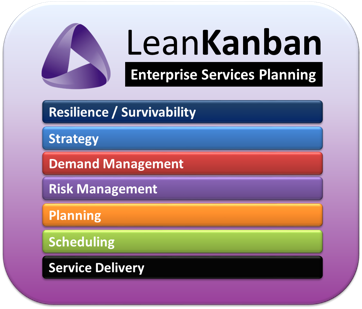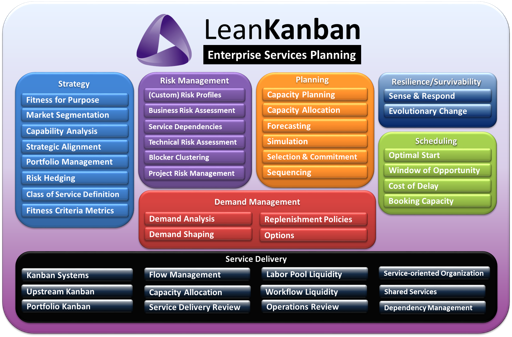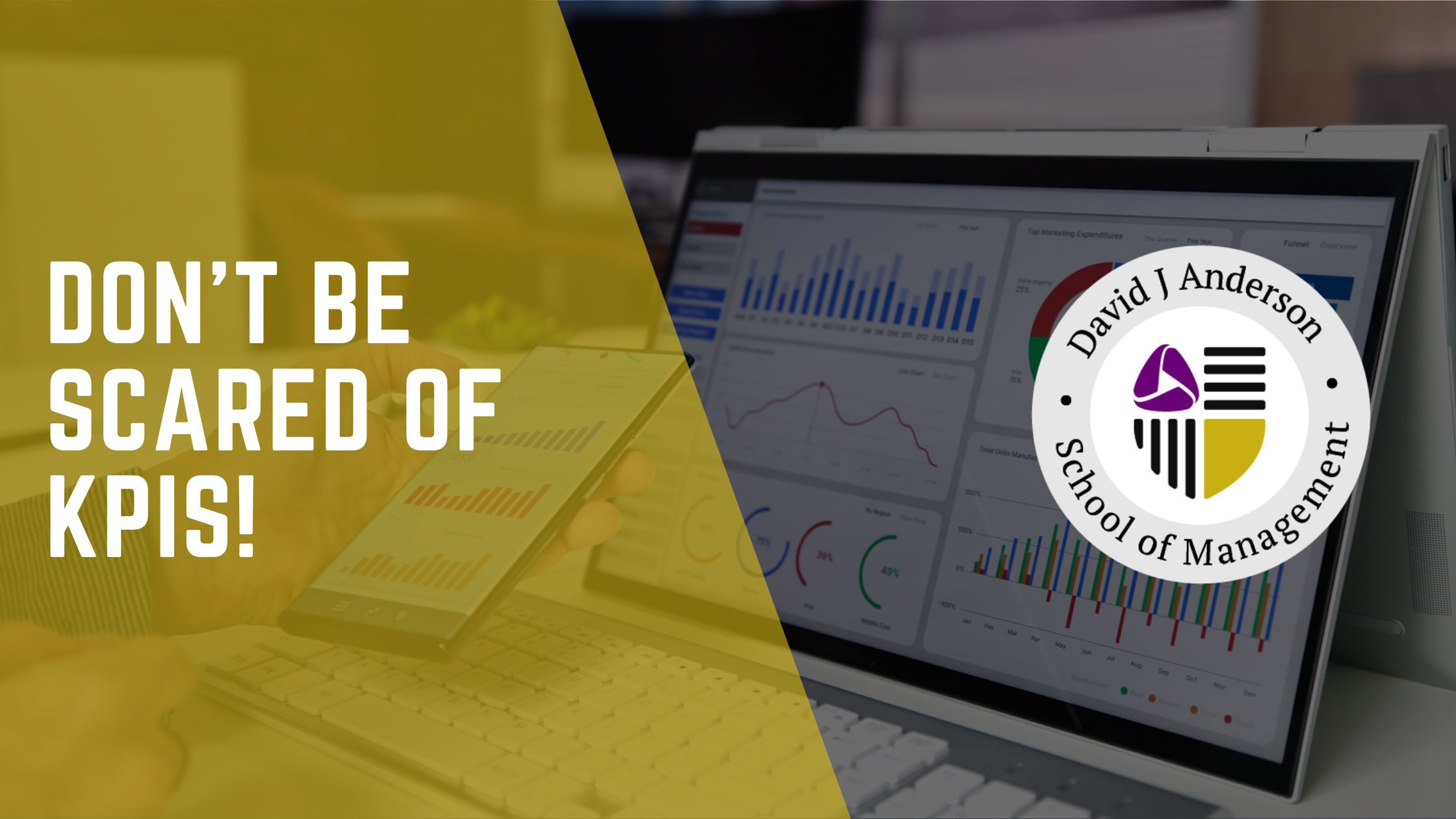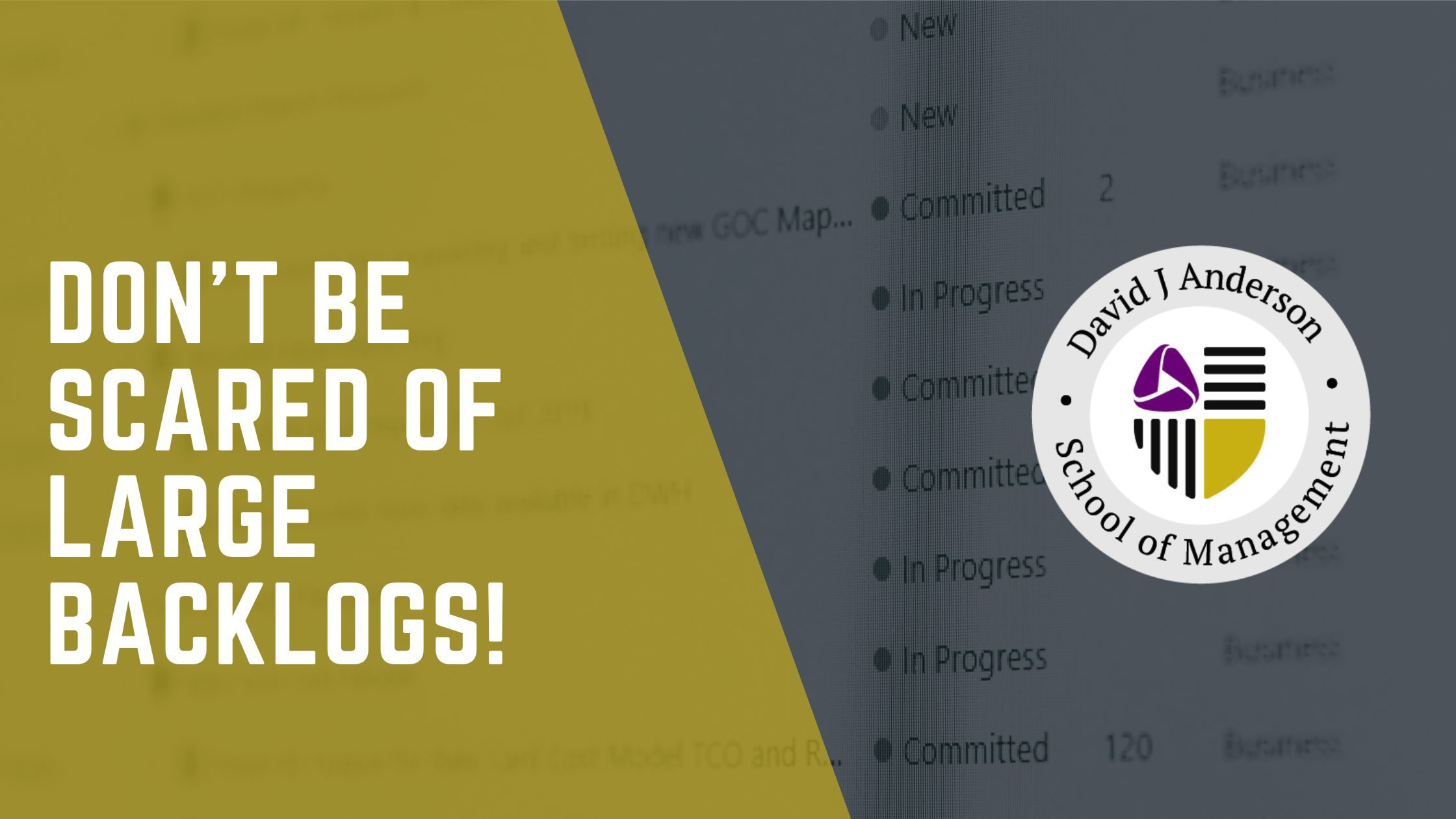Introducing Enterprise Services Planning
This year, we’re officially introducing Enterprise Services Planning (ESP) as a concept and specifically as a management training curriculum. Later this year, I anticipate the launch of Enterprise Services Planning software tools to support the mechanisms and methods taught in our classes.
What is Enterprise Services Planning (ESP)?
Kanban is now table stakes for many businesses managing enterprise services delivery. They’ve learned that introducing Kanban to their management system has improved service delivery with typical results showing 400% increase in delivery rate, drops in lead time from 50% to 90%+, and significant gains in predictability and on-time delivery, or “due date performance.” The results are so good organizations like to duplicate it – one workflow after another, one service after another. This raises a challenge. Businesses are ecosystems of interdependent services. Kanban isn’t enough on its own. Business struggle with the challenge of managing their portfolios and aligning their activities with their strategy and choosing a strategy that is appropriately aligned with their capability. We see people every day struggle to make decisions and do their jobs with confidence. What should we start next? When do we need to start something to feel confident it will be delivered when we need it? How many activities should we have running in parallel? Do we have capacity to do everything we need to do? If we delay starting something, are we confident the capacity will be available when we need it? How will dependencies affect our ability to deliver?

The 7 Elements of Enterprise Services Planning
If you are using Kanban to enable your service delivery and improve customer satisfaction then you need Enterprise Services Planning to answer all of these questions. Enterprise Services Planning teaches you how to select things, when to schedule them, which order to sequence them, how to know when and whether there is capacity, how to manage dependencies, how to plan, how to track, and how to know whether your results are good enough or need to be improved.
View my Slideshare Introducing Enterprise Services Planning. This presentation show the history of 10 years of success with Kanban and defines the vision for the future of Kanban as Enterprise Services Planning as “AI for your work.”
Training Curriculum
We broken the extensive Enteprise Services Planning training into modules. Altogether the curriculum provides 5 solid days of training. This can be consumed in a modular fashion. There are four modules that can be taken individually or in combinations.
Module 1 – Portfolio Management (2 days)
Module 2 – Enterprise Services (1 day)
Module 3 – Project & Capacity Planning (1 day)
Module 4 – Portfolios, Programs & Dependencies (1 day)

Enterprise Service Planning Framework (rel 1.0)
Some recommended combinations:
- Modules 1 & 2 together are ideal for product managers, business analysts, product owners, and marketing directors
- Modules 1 & 4 together are ideal for portfolio and program managers
- Modules 2, 3 & 4 together are ideal for project managers and function managers with responsibilities for delivery
- An stripped down version of Module 1 focusing on strategy & fitness for purpose would be ideal for senior decision makers
Prerequisites
- Module 1 requires on information knowledge of Kanban and is ideal for those who haven’t used or experienced Kanban previously
- Module 2 will work better with participants who have experience with Kanban and have completed the “Getting Started with Kanban” foundation level class. The advanced “Kanban Method” class is an optional prerequisite for Module 2
- Module 3 requires some background in Kanban and elements from Modules 1 & 2 in order to take the full benefits from the curriculum
- Module 4 has a 50% overlap with the “Kanban Method” class and will work best for attendees who’ve taken Modules 1 and/or 2
ESP Tools
The future for the use of software with Kanban is advanced ESP tools. ESP tools will feature inference engines that help you answer all these enterprise scale questions: what should we start next?; when should we start something in order to know it will be finished on time?: do we have capacity to do everything we need to do?; if we delay starting something will capacity be available when we need it?; when will it be ready?; if we increase capacity what will that do to the schedule? how will that affect other things in our portfolio? ESP tools are “AI for your work”. I’m excited to see 3 vendors already dedicated to the development of ESP tools. I truly believe that we are looking at the emergence of a major new category of software product. ESP is the way 21st Century businesses will be managed in future.




